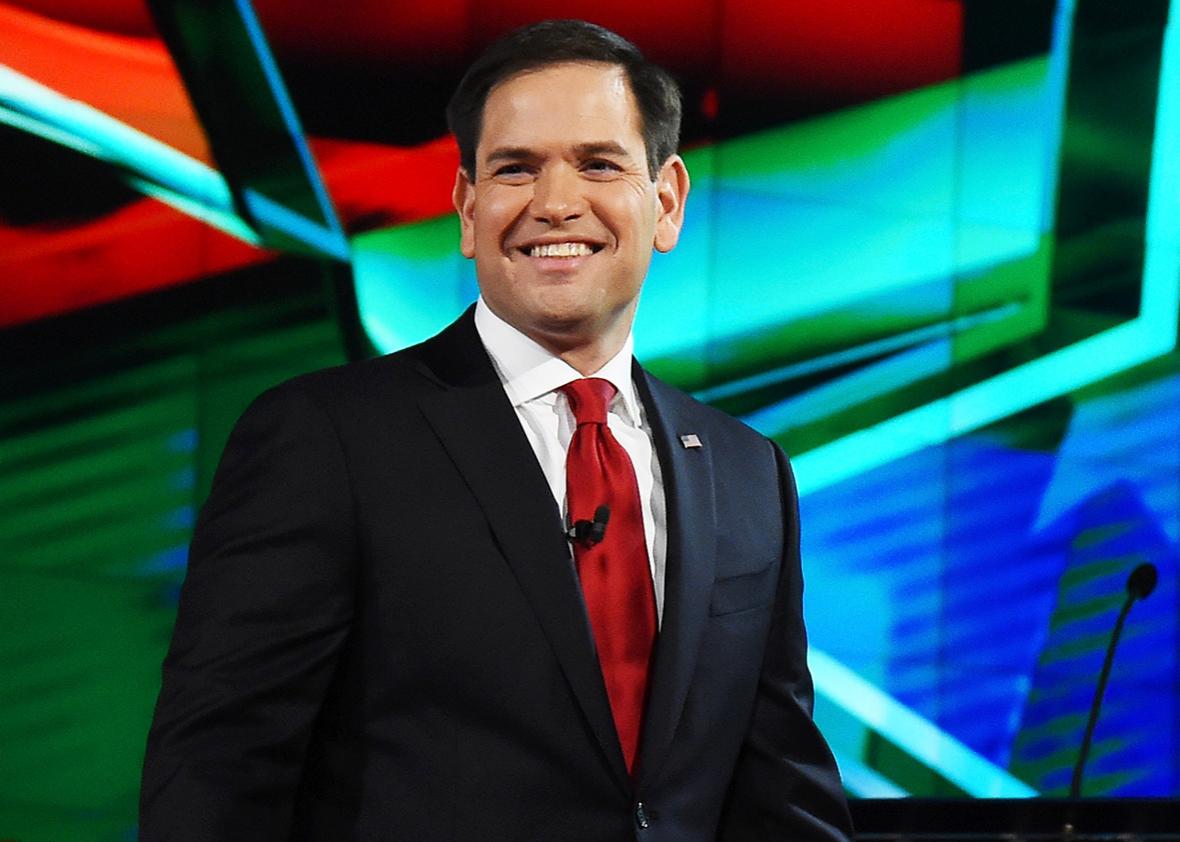As we move toward the new year—and voting in the Republican presidential primary—traditional Republican elites are sure of one thing: If Donald Trump can’t win Iowa—or at least, do well—then he’s finished.
“Traditionally what you have out of Iowa is the front-runner, and then one or two others who come second and third and better than expected,” says Republican pollster Ed Goas to the Washington Post. “Trump can’t be second or third. The way he’s framed it is: You either win or lose. He’s going to have a hard time with his narrative if he doesn’t win.”
Likewise, said Arizona Sen. Jeff Flake, “I frankly don’t think he’ll win Iowa … I think he’ll have a hard time playing second fiddle to anybody. Once he’s down, I think he finds a way to get out.”
Echoing Flake and Goas is Stuart Stevens, chief political strategist for Mitt Romney’s 2012 presidential bid. “Trump’s entire definition is based around ‘winning,’ ” says Stevens. “So if he doesn’t win Iowa he has lost Iowa and that makes him a … loser, that dreaded word in the Trump lexicon.” If he loses Iowa, the only way he can succeed is by putting real resources in New Hampshire and subsequent states. “To win you have to win,” says Stevens.
The latest pronouncement on this comes from Bill Kristol, editor of the Weekly Standard. “Trump loses Iowa, the mystique disappears,” said Kristol in a recent interview with ABC News. “He’s just another candidate—though perhaps a formidable one—and he’s beaten by either Rubio, Cruz, or Christie.”
All of this is persuasive. Trump’s persona is based on winning. Ultimately, if Trump is serious about running for president, he does need to win caucuses and primaries, and Iowa—where he’s second behind Sen. Ted Cruz—would make for a strong start. And if he can’t win in Iowa, he does have trouble in subsequent contests, to the point where he could leave the race.
At the same time, this analysis is self-serving. Republican strategists, elites, and lawmakers have a vested interest in making Iowa the proving ground for Trumpism; convince voters and pundits that Iowa is indispensible to Trump’s movement, and you’ve primed the pump for pushing Trump out of the race if and when he can’t deliver. But there’s a problem: When you look at their actions, Republican elites don’t actually believe their own rhetoric on this score.
In fact, the establishment Republican strategy for winning the nomination depends on ignoring Iowa. That logic might extend to other early states, too. It’s why Gov. Chris Christie, Jeb Bush, and Gov. John Kasich have parked their campaigns in New Hampshire, and why Sen. Marco Rubio—so far, the most viable “establishment” candidate—has done the same in South Carolina and Nevada. Their theories of the race—and by transference, the theory driving elite Republicans—hold Iowa as an electoral mulligan.
If they lose the state it doesn’t matter, as it’s already bad territory for candidates who aren’t allied with evangelical voters. In their view, what counts is New Hampshire, with its independent voters and more moderate sensibility. It’s where Romney jumped ahead in 2012; where Sen. John McCain excelled in 2008 and 2012; where Sen. Bob Dole solidified his position in 1996 and where Vice President George H.W. Bush took a decisive lead in 1988.
But this view—Iowa matters for Trump and not for us—is nonsense. Either Iowa matters for GOP candidates—a test of organization and coalition building—or it doesn’t. If, for example, Rubio doesn’t need to win the state to stay viable for subsequent contests, then the same is true for Trump, for the same reasons: His voters aren’t evangelical voters and they aren’t conservatives either. They’re less ideological, less religious, and hold more influence in places like New Hampshire and even Nevada than they do in Iowa. The standards GOP elites are drawing for their candidates—that Rubio or Christie or Bush could flounder in February and still recover momentum to win—apply to everyone with the resources to fight a sustained battle. That includes Trump.
With all of this said, it’s worth returning to Stuart Stevens’ comment: “To win you have to win.” We can debate scenarios for all of the candidates in the race, but this is simply true. At some point, the most popular and favored contenders have to start winning, whether it’s in Iowa or New Hampshire or beyond. As observers, we should start to give the most weight to candidates who seem most likely to win. And all of them are vying for a top spot in New Hampshire. So many, in fact, that it opens a path for one candidate in particular—Cruz—to make a splash.
Read more of Slate’s coverage of the GOP primary.
